* Photos: Anadolu Agency (AA) - Archive
Click to read the article in Turkish (1) (2)
Following the declaration of 10-day-long Navtex (navigational telex) in the Eastern Mediterranean, Turkey's Oruç Reis seismic research vessel left Antalya Port yesterday (October 12).
High Representative of the European Union (EU) for Foreign Affairs and Security Policy and Vice President of the European Commission Josep Borrell Fontelles has addressed this issue at the Foreign Affairs Council in Luxembourg. "We consider that Turkey needs to engage actively in finding solutions and not to engage in negative behaviour," he has said and added:
"The latest Navtex announcements by Turkey affecting Greek and Cypriot maritime zones are also regrettable. This will lead to new tensions instead of contributing to the de-escalation efforts that we were calling for at the last EU Council, and that we want to pursue and continue to call for."
Maas cancels visit to Turkey
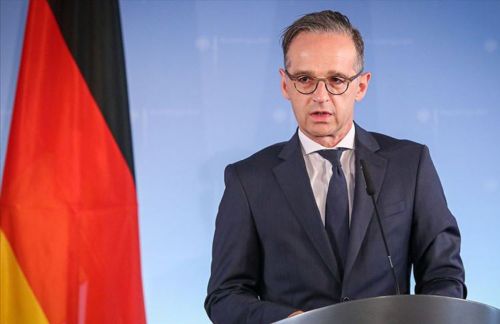
Heiko Maas, Germnay's Minister of Foreign Affairs who has been trying to mediate between Turkey and Greece amid tensions in the Eastern Mediterranean, has also cancelled his scheduled trip to Turkey.
The Spokesperson for Germany's Foreign Ministry has announced that Heiko Maas will only be travelling to Athens in Greece and Nicosia in Cyprus.
When the press asked why he would not visit Turkey as planned, the Spokesperson noted that the Minister's plans only coves Greece and Cyprus. Kyriakos Mitsotakis, the Prime Minister of Greece, will have a meeting with Heiko Maas today at 7 p.m. local time in Greece.
'Cyprus and Greece are our partners in the EU'
Ahead of Maas' visit to Greece and Cyprus, a statement has been released on the website of Germany's Foreign Ministry. The statement reads:
"Cyprus and Greece are our partners in the European Union. I am therefore flying to Nicosia and Athens today to assure my colleagues of our full solidarity, including in our current role as the EU Council Presidency.
"One thing is clear: The geography in the eastern Mediterranean will not change. Turkey will remain a neighbor of Greece and Cyprus.
"All sides must therefore continue to work on a reasonable neighborhood relationship. This requires an honest effort on all sides. Exploratory talks can only lead to the goal in a constructive atmosphere.
'Don't close the dialogue window again'
"We therefore appeal to Turkey that the dialogue window that has just opened with Greece is not closed again through unilateral measures. Ankara must end the interplay between relaxation and provocation if the government is interested in talks - as it has repeatedly asserted.
"In the event of renewed Turkish gas explorations in the more controversial sea areas in the eastern Mediterranean, that would be a major setback for efforts to de-escalate - and thus also for the further development of EU-Turkey relations, as the last European Council decided."
Timeline of the Eastern Mediterranean crisisThe tension between Turkey and Greece over their right to explore energy resources in the Eastern Mediterranean has seriously escalated over the last months. The latest developments leading to this escalation are briefly as follows: On July 21, Turkey issued its first Navtex alert for Oruç Reis seismic vessel's exploration activities in the Eastern Mediterranean. On July 28, Turkey announced after Germany's diplomatic efforts that it suspended hydrocarbon exploration activities and stated that it was ready to talk with Greece. On August 6, Greece and Egypt signed a maritime border agreement. On August 10, Turkey announced that its drillship Oruç Reis would resume energy exploration in the Eastern Mediterranean. It said the ship will continue its work along with the ships Cengiz Han and Ataman until August 23. On August 14, the EU foreign miniters discussed the crisis at an extraordinary meeting, calling on Turkey to end hydrocarbon exploration activities in contested waters. On August 16, Turkey issued a Navtex, announcing that its drill ship Yavuz will continue its work exploring for energy resources off the island of Cyprus. On August 23, Turkey issued another Navtex, stating that the Oruç Reis vessel would continue its activities until August 27. On August 24, Greece held joint naval drills with the US in the south of Crete island. One day later, Turkey conducted naval exercises with Italy. On August 25, Germany's Minister of Foreign Affairs Heiko Maas visited Athens and Ankara to encourage the two countires to have direct talks. On the same day, Turkey held replenishment exercises with Italy in the Eastern Mediterranean. On August 26, US President Donald Trump had phone talks with President Recep Tayyip Erdoğan and Prime Minister of Greece Kyriakos Mitsotakis, urging them to reduce tensions and start dialogue. On the same day, Turkey and the US conducted joint maritime exercises. On August 27 and 28, EU foreign ministers met with the Eastern Mediterranean crisis on the top of their agenda. The Union's foreign polict head Josep Borrell said after the meeting that Turkey's ships might be sanctioned if they continued hydrocarbon activities. Turkey's Ministry of National Defense on August 28 announced that it intercepted six F-16 fighters planes of Greece, which it said were closing in on the area where Turkey issued a Navtex. On September 1, the US lifted the arms embargo on Southern Cyprus. On September 2, Turkey issued two Navtex alerts for Russia's gunnery exercises in the Eastern Mediterranean. It was stated that Russia would conduct exercises in two different areas that correspond to Turkey's hydrocarbon exploration activities on the east and west of the Cyprus island. On September 3, NATO Secretary General Jens Stoltenberg said, "Following my discussions with Greek and Turkish leaders, the two Allies have agreed to enter into technical talks at NATO to establish mechanisms for military deconfliction to reduce the risk of incidents and accidents." On September 4, Prime Minister of Greece Kyriakos Mitsotakis said that Greece would only enter into a dialogue with Turkey if it "stops provocations" in the Eastern Mediterranean. Shortly before this statement, Turkey's Foreign Ministry stated, "Turkey is ready to enter into dialogue with Greece without any preconditions." On September 10, military delegations from Turkey and Greece had technical talks at NATO headquarters to prevent military engagement. On Septemebr 15, issuing a new NAVTEX alert for the Chios Island of Greece, Turkey argued that Greece had militarized Chios Island in violation of the 1923 Lausanne Peace Treaty. The military delegations from the two countries held the second technical meeting. On September 17, the European Parliament warned Turkey of sanctions if it continues its hydrocarbon exploration activities. On September 18, Turkey summoned Greece's envoy over a newspaper headline about President Erdoğan. On September 21, the US stated that it does not consider the Seville Map on the maritime borders of Turkey and Greece as a document that has legal significance. On October 1, A military deconfliction mechanism has been established between Turkey and Greece. On October 2, The European Union (EU) stated after its leaders' summit in Brussels that it wanted to give a chance to constructive political dialogue but warned that all options were on the table if that was not the case. On October 8, foreign ministers of Turkey and Greece had their first meeting since the start of the crisis. On October 12, Turkey issued a new 10-day Navetx for its seismic research vessel Oruç Reis and the vessel left Antalya Port early in the morning On October 13, it was announced that Germany's Foreign Minister Heiko Maas cancelled his visit to Turkey and the EU condemned Turkey's new Navtex, saying, "The latest Navtex announcements by Turkey affecting Greek and Cypriot maritime zones are regrettable." |
(PT/SD)




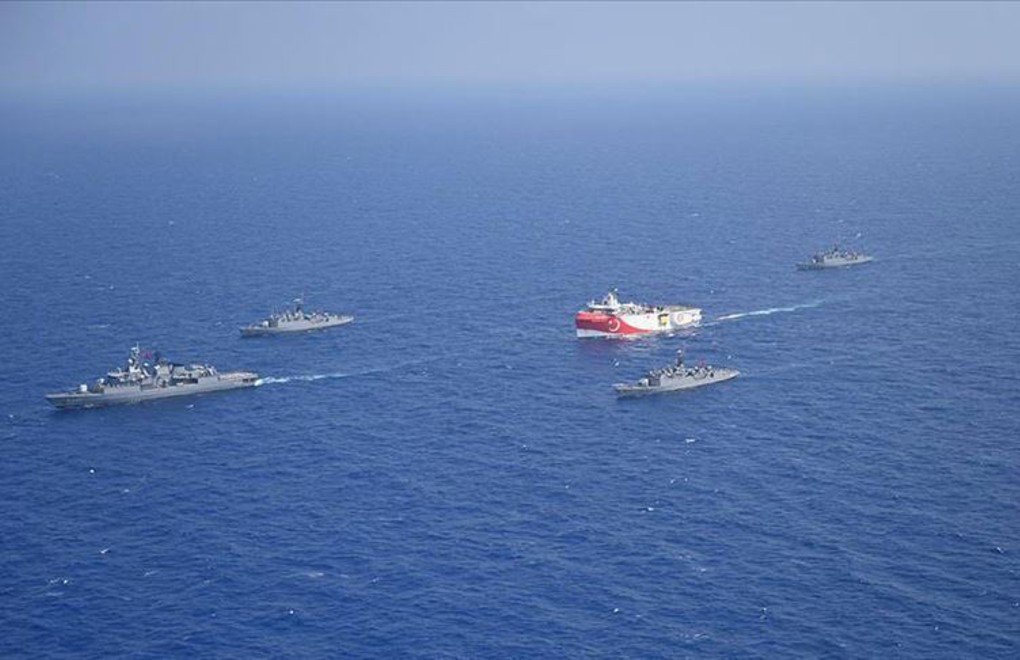
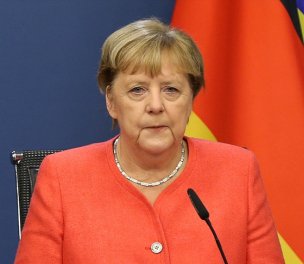
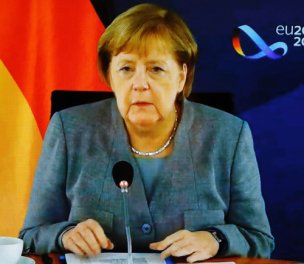
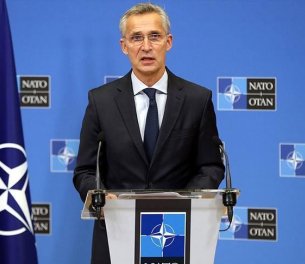
-132.jpg)

-132.jpg)
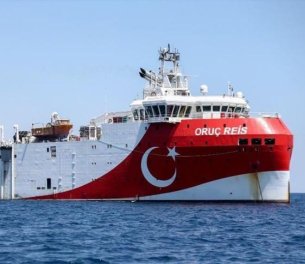
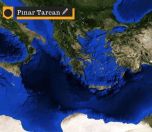
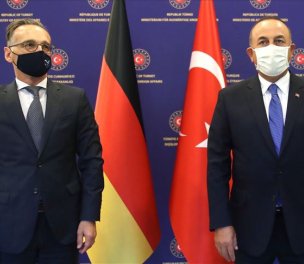
as.jpg)